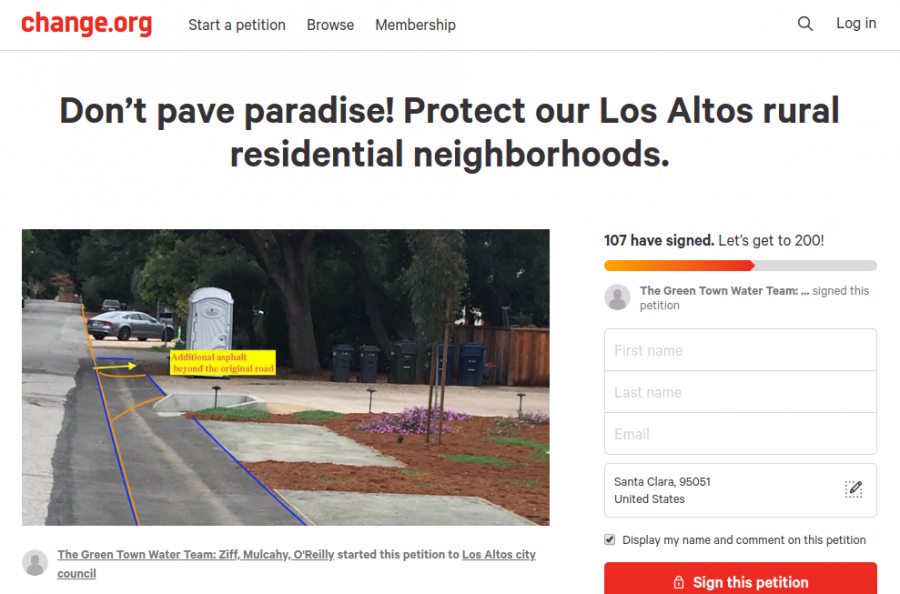Los Altos City Council approves modified Street Shoulder Paving Policy
GreenTown Los Altos’ Water Quality Team started petitioning against the use of asphalt on November 16. The petition received over 150 signatures from local residents, but some supporters decided not to publicize their pledges on Change.org.
January 12, 2019
At the city council meeting on Tuesday, November 27, the Los Altos City Council addressed concern over the local Street Shoulder Paving Policy by passing a modified version that utilizes more permeable materials suggested by GreenTown Los Altos. Originally, the policy proposed the building of a three-foot wide asphalt concrete drainage swale extending 37 miles to residential neighborhoods, but GreenTown Los Altos opposed this plan because of the potentially harmful environmental effects of impermeable asphalt.
GreenTown Los Altos’s Water Quality Team started a petition advocating for the use of permeable material for swales instead on Friday, November 16. The main concern was that asphalt causes toxic run-off, which can carry street pollutants into the ocean and diminish water quality. The petition garnered over 150 signatures by the time the City Council voted to get rid of asphalt in favor of permeable materials.
“[The policy] was wrong for Los Altos, [wrong for] our rural character and wrong for the environment,” Los Altos GreenTown Water Quality Team petition co-leader Tami Mulcahy said.
However, there was still some initial concern with GreenTown Los Altos’s Water Quality Team’s permeable materials proposal. At the city council meeting, a Los Altos resident reminded the council that permeable materials could potentially increase the speed of cars by as much as ten miles per hour, according to the National Association of City Transportation Officials. Several other residents agreed that this could pose a potential safety hazard to bicyclists and pedestrians.
Mulcahy countered this statement, saying that permeable materials have been the go-to choice for Los Altos’s rural frontages for years without problems. Additionally, in response to the safety concerns brought up by residents, GreenTown Los Altos’s Water Quality Team offered some alternatives for impervious materials.
“Pebble is the best material, even bark,” Mulcahy said. “A solid stormwater policy would address volume so that shouldn’t be a problem. Another material that is popular is granite fines.”
Although the petition was passed, Mulcahy said there are still future steps to be taken before the issue is truly resolved.
“Educating needs to continue with city staff and with the public as well,” Mulcahy said. “Just like plastic bags and straws, we need to improve awareness on this issue. Water is life. We need to protect our waterways from pollution and fill up our aquifers.”





